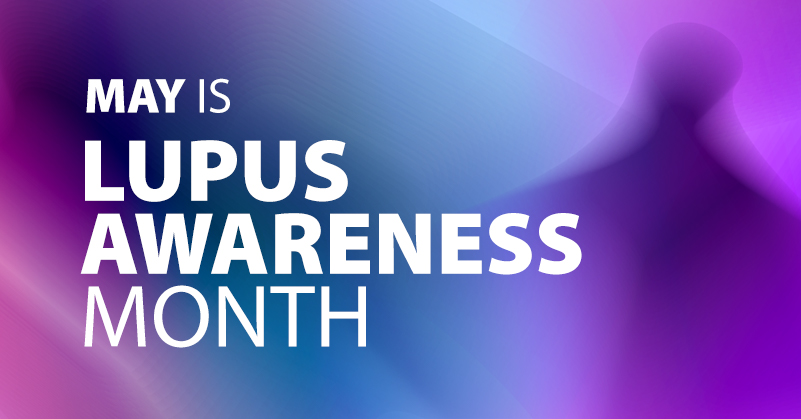How to find support and raise awareness during Lupus Awareness Month

May is Lupus Awareness Month, which is an opportunity for the global lupus community to raise awareness of the physical, emotional, and economic impact of lupus. This year, the Lupus Foundation of America is running a campaign to #MakeLupusVisible. The goals are to educate others about lupus, show the world that the lupus community can (virtually) stand together, and promote social media conversation. Here are a few ways to find support and raise awareness during Lupus Awareness Month.
Lupus Awareness Month resources
Lupus Awareness Month is the optimal time for the community to educate others about what it’s like to be a lupus patient or caregiver. Take to social media and let people know what lupus is and how it affects you. Here you’ll find suggested social media posts, pledge opportunities, and embeddable graphics to share.
- Many lupus symptoms aren’t visible, which can sometimes lead to judgment from others who don’t exactly understand your daily struggles. By taking a purple pledge to continue raising awareness, you’ll help make lupus visible all year-round.
- If you’re a Facebook user, you can sign into your account and then visit the profile picture frames section. This year, you can select an overlay that says “I’m making lupus visible during lupus awareness month.” Save a copy of that picture and share it across your other social media accounts, too!
- Post some shareable infographics, fact sheets, and image cards for your communities to better understand lupus:
- Signs and symptoms of lupus
- The impact of lupus in America
- The Burden of Lupus
- Lupus fact sheet
- “Let's Make Lupus Visible” Facebook, Twitter, and Instagram
- “May is Lupus Awareness Month”: Facebook, Twitter, and Instagram
- “I'm Raising Awareness. Will You Join Me?”: Facebook, Twitter, and Instagram
- “I Took The Purple Pledge”: Facebook, Twitter, and Instagram
- “Today is World Lupus Day”: Facebook, Twitter, and Instagram
- Record a short video or post a selfie telling people how lupus has changed your life and provide hope and inspiration to others. Your story matters. Add your personal journey to Voices of Lupus, a living collection of stories of those impacted by lupus.
- Organize a virtual (or socially distanced in-person) fundraising event. The funds raised can help support lupus research, advocacy groups, and other community events.
Digital community groups and pages to follow
Social media is a great way to connect with other lupus patients, friends, family members, and caregivers. This is a small selection of the many lupus groups out there:
- Lupus Awareness Support Group: This Facebook group has over 25,000 members and is for anyone (patient, family, friend, caregiver, etc.) who has been affected by lupus.
- Lupus Friends & Family: This Facebook group of 3,000 members is a supportive network of people who want to be there for lupus patients, caregivers, and families. They support lupus fundraising events and research. The focus is on support, resources, education, and staying positive.
- r/lupus: This reddit community is for those suffering from lupus, designed to connect, build community, and provide support. With over 12,000 members, this is a safe space for everyone.
- Lupus Foundation of America Facebook page: This is the official Facebook page for the Lupus Foundation of America, which includes videos, updates on the latest research, shareable content, and awareness information.
- Lupus Research Alliance: This is the official Facebook page for the Lupus Research Alliance, the world’s largest private funder of lupus research. Here you’ll find stories about lupus breakthroughs, easy-to-share graphics with facts about lupus, and information about fundraising.
- LupusConnect is an online forum run by the Lupus Foundation of America through which patients can “share experiences, find emotional support, and discuss practical insights for coping with the daily challenges of the disease.”
One other way to advocate for lupus during this year’s Lupus Awareness Month is to consider participating in a clinical trial. New studies are testing the safety and efficacy of drugs for lupus, but they can’t progress without volunteers. People living with lupus are needed to help move this science forward.
Topics: For Patients

